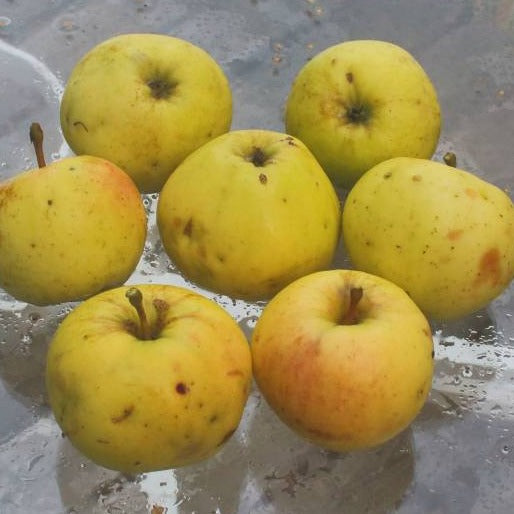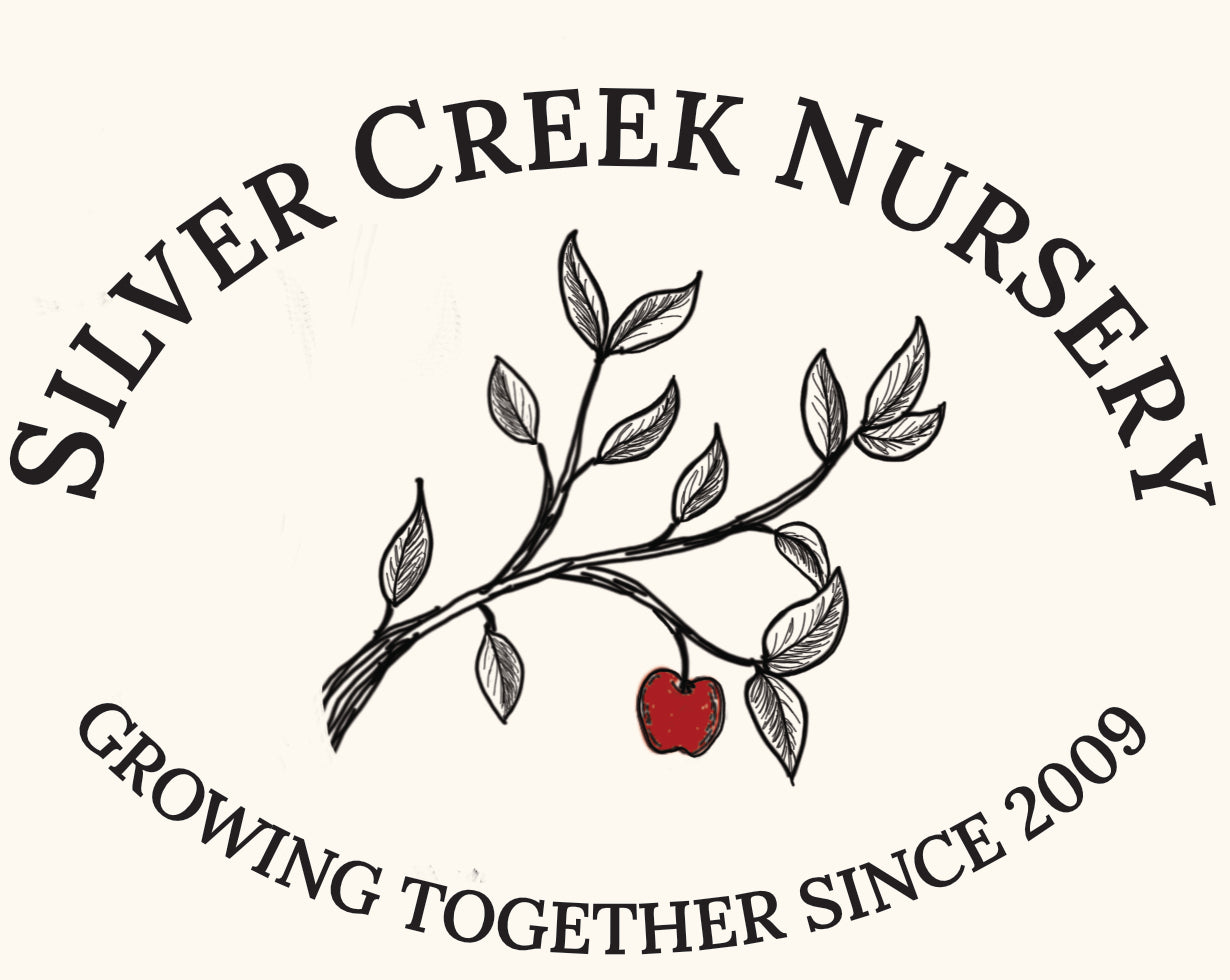Silver Creek Nursery Ltd.
Marmota Apple
Marmota Apple
History: Marmota was discovered in 2019 by Quebecois cider maker Claude Jolicoeur. It is one of about twenty wild apple trees he discovered growing near his property in Charlevoix County, Quebec where he has found several promising cider varieties. All three apple varieties he has found amongst these trees are named after common wildlife, the name Marmota coming from the scientific name for the common marmot: Marmota monax.
Why We Grow It: We enjoy offering Claude Jolicoeur's apples to those interested in expanding their cider selection! It is a promising bittersweet cider apple with some similarities to Bulmer's Norman.
Photo provided courtesy of Claude Jolicoeur. Visit his website here for more information on Marmota.
Fruit Specs
Fruit Specs
Recommended Use: Cider
Fruit Size: Medium
Storage: Keeps a couple weeks when stored in cool, humid conditions
Harvest: September - Late
Cider Class (if applicable): Class: Bittersweet
Sugar: Medium, SG 1.052-1.056
Acidity: Low, TA 1.4-1.6 g/L
Tannins: Medium
Juice Yield: Low
Taste: Very sweet, good flavour typical of bittersweet cider apples
Notes: Thick juice, dark brown in colour
*Information based on Claude Jolicoeur's observations
Growing Specs
Growing Specs
Canadian Hardiness Zone: 4
Soil Preference: Sandy loam, loam, clay loam. Prefers average to moist conditions, avoid planting anywhere that floods for more than two weeks in the spring. Generally quite adaptable to different soil conditions.
Flowering Time: Unknown
Bloom Colour:
Pollination Requirements: Requires a pollinator of a different apple variety that blooms around the same time
Sun/Shade Requirements:
Full sun (approx. 8-10 hours of sun daily)
General Growth Habits:
Potentially resistant to scab
General Disease Resistance Rating: . This is a combined rating of how the cultivar produces and grows in our test orchard, along with the cultivar's known disease resistences/susceptibilities. Remember, just because a variety is susceptable to something does not mean it will get it. The microclimate, pests and disease present within your orchard/area will differ from ours too, creating a unique growing condition that may or may not induce certain pests or diseases.
Shipping vs. Pick Up
Shipping vs. Pick Up
CLICK HERE to see how shipping compares to pick up.
Shipping: Every year we ship thousands of trees across Canada (except BC due to CFIA regulations). We carefully bag roots in damp sawdust, then box them and send them out via courrier. CLICK HERE to see our shipping policy.
Pick-up: We also have thousands of trees picked up from our nursery each year. The pick-up options is free, though you must wait until you have been emailed a confirmation that your order is ready to pick up, which will have further information such as hours, locations, etc. We really appreciate if you can make an appointment to pick up, then we can be as organized as possible during our busy season.
Size at Purchase
Size at Purchase
Our grafted fruit trees are graded into three categories, and the size includes the rootstock:
- 50-80cm whip: may have some minor branching, this grade is like a "b-grade" size tree in industry standards; we include in this price category trees that are over 1m but have some scarring or mild crookedness.
- 1m+ whip: may have some minor branching, aka feathering. This is like a typical one-year whip in industry standards.
- 1m+ branched: these trees must be over a meter and have 3 or more branches 30cm or longer, as well as a central leader. They are essentially a two-year tree in industry standards.
- For stone fruits only - 1m+ whip/branched: We have combined these grades based on the way these trees grow and are grafted. Plums, apricots, cherries, and peaches naturally tend to grow more vigorously compared to apples and are more likely to form larger trees with more branches. However, we only chip bud them so they are a one-year old tree by industry standards. Apples and pears are partially bench grafted, and using the knip-boom method the grading becomes more complicated, hence the reason they are split into different grades.

Orders that are cancelled last minute due to size (being "to small"), will still incur the applicable cancellation fees if the trees are true to our grading standards as per the agreement of sale when the order was placed.
Couldn't load pickup availability
Share


